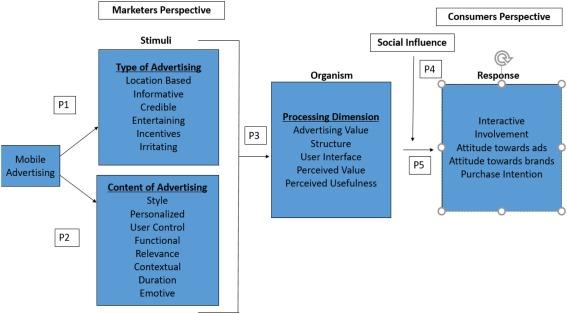Top Skills & Roles of a Learning Solutions Consultant: Essential Guide for Success
Introduction
The rise of education technology has transformed learning environments in universities, colleges, and schools worldwide.As institutions strive to provide more engaging, efficient, and accessible educational experiences, the role of a Learning Solutions Consultant has never been more crucial. If you are an aspiring job seeker aiming to secure a position in this dynamic field, understanding the core skills and responsibilities can set you apart from the competition. This thorough guide explores the top skills and roles required of a Learning Solutions Consultant, offering practical tips and valuable insights to help you succeed in the education technology sector.
What Is a Learning Solutions Consultant?
A Learning Solutions Consultant is a specialist who collaborates with educational institutions to assess, design, implement, and optimize technology-driven learning solutions. their expertise helps schools, colleges, and universities integrate digital tools and platforms that enhance teaching and learning outcomes. The role demands a blend of pedagogical knowledge, technical skills, and exceptional communication abilities.
Key Responsibilities of a Learning solutions Consultant
- Needs Analysis: Evaluating the institution’s existing learning systems and identifying gaps and opportunities for improvement.
- Solution Design: Recommending and designing tailored edtech solutions that align with curriculum goals.
- Implementation: Managing the deployment of learning technologies such as Learning Management Systems (LMS), digital content, and assessment tools.
- Training & Support: Providing workshops and support for faculty and staff to maximize the use of new tools.
- Project Management: coordinating timelines, resources, and stakeholders to deliver results on schedule.
- Evaluation & Feedback: Gathering data on solution effectiveness and making data-driven adjustments for ongoing improvement.
- Stakeholder Engagement: Communicating benefits and progress to administrators, educators, and other decision-makers.
top Skills Required for Success as a Learning Solutions Consultant
To shine in this role, aspiring consultants must develop a diverse skill set that spans the educational and the technological domains. Here are the essential skills employers value in candidates for education technology jobs:
Education Technology Expertise
- Deep knowledge of popular Learning Management Systems (LMS) like Canvas, Moodle, or Blackboard.
- Familiarity with digital content creation tools such as Articulate Storyline,Adobe Captivate,and interactive video platforms.
- Understanding of adaptive learning, gamification, and mobile learning trends.
Instructional Design Skills
- ability to design learner-centric experiences using evidence-based pedagogical frameworks.
- Proficiency in curriculum mapping and aligning digital tools with learning objectives.
Technical Proficiency
- Competency in integrating edtech systems and troubleshooting technical issues.
- Working knowledge of API connections, user data management, and system analytics.
Project management Skills
- Ability to plan, execute, and oversee multiple projects together.
- Experience with agile methodologies, workflow optimization, and resource allocation.
Communication & Collaboration
- Strong presentation skills to deliver training and pitch solutions to diverse audiences.
- Active listening and empathy to understand faculty and student challenges.
- Interpersonal skills for building trust and fostering buy-in for new solutions.
Analytical & Problem-Solving Abilities
- Data-driven decision making using feedback from pilot programs and usage analytics.
- Creative problem-solving to adapt solutions for different contexts and challenges.
Benefits of Becoming a Learning Solutions Consultant in Education Technology
Pursuing a career as a Learning Solutions Consultant in universities, colleges, or schools opens a wealth of opportunities. Here are some compelling benefits:
- Impact: Drive meaningful change in how students learn and how educators teach.
- Growth: Participate in a fast-evolving industry with ongoing opportunities for skill advancement and specialization.
- Collaboration: Work with diverse teams,ranging from administrators to IT departments.
- Recognition: Establish yourself as a technology thought leader in the academic space.
- Versatility: Enjoy potential remote work options and project-based contracts, depending on the institution’s needs.
Practical Tips for Job Seekers: How to succeed as a Learning Solutions Consultant
Whether you’re a seasoned educator pivoting to technology or a tech professional drawn to the education sector, these actionable strategies can help you secure your dream job and thrive:
- Build a Portfolio: Showcase real-world examples of projects, instructional materials, and prosperous implementations. Include evidence of improved learning outcomes.
- Stay Updated: Regularly participate in webinars, online courses, and edtech conferences to follow the latest trends and best practices.
- Network: Connect with hiring managers, current consultants, and professional communities focused on education technology.
- Get Certified: Look into certifications like Certified Education Technology Leader (CETL) or specialized instructional design programs to enhance credibility.
- Refine Communication Skills: Practice translating complex technology concepts into practical benefits for non-technical audiences.
- Understand the Institution: Tailor your approach to the unique culture, goals, and challenges of each university, college, or school you target.
- Highlight results: In interviews and applications,emphasize measurable project impacts such as increased engagement,improved grades,or optimized processes.
Career Paths and Advancement Opportunities
The career of a Learning Solutions Consultant can evolve in exciting ways as you gain experience and expertise. Some path options include:
- Senior Consultant: Oversee larger-scale transformations for entire academic organizations.
- Edtech Product Manager: Transition to managing product development for edtech companies or vendors.
- Director of Digital Learning: Shape strategic vision for technology adoption at the institution-wide level.
- Faculty Trainer: specialize in equipping educators with edtech skills in ongoing professional development roles.
- Autonomous Consultant: Launch your own consulting practice serving multiple institutions.
Conclusion
As education technology reshapes learning landscapes, the demand for skilled learning Solutions Consultants continues to rise. Armed with a robust skill set, industry knowledge, and a passion for transformative education, you can make a important impact in universities, colleges, or schools. By following the tips and insights outlined in this guide, aspiring job seekers can confidently pursue opportunities in this rewarding, fast-growing field — driving innovation, improving student outcomes, and helping academic institutions thrive in the digital age.

